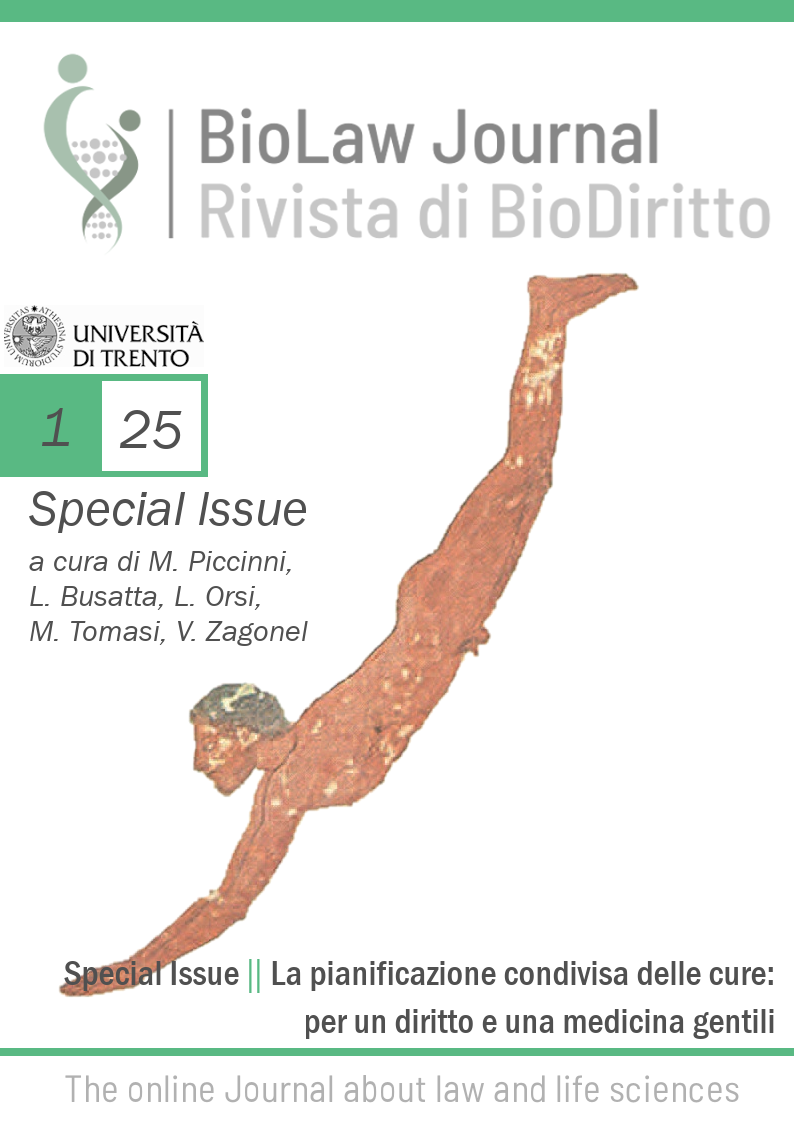Shared care planning: potentials and “conflicts” of conscience in end of life choices. some reflections based on research conducted by the laboratory of fundamental rights in Turin
DOI:
https://doi.org/10.15168/2284-4503-3427Keywords:
Advance care planning, Shared care planning, ethical pluralism, conflicts of conscience, end-of-life choices, self-determinationAbstract
Starting from the experiences of healthcare professionals interviewed as part of the qualitative research “Ethical pluralism and conflicts of conscience in hospital activities” by the Laboratorio dei Diritti Fondamentali di Torino (published in 2021), this article offers some reflections on the possible obstacles to the use of Shared Care Planning (SCP) but also on its potential to protect self-determination, especially in the advanced stages of illness and in end-of-life decisions. The interviews highlight how little use is still made of SCP in some contexts and show the complexity of the decision-making processes in the most ethically and legally difficult cases, as well as the need to intervene on a number of factors (legal, organizational, professional, educational) for an effective implementation of SCP.
Downloads
Published
How to Cite
Issue
Section
License

This work is licensed under a Creative Commons Attribution-NonCommercial-NoDerivatives 4.0 International License.





